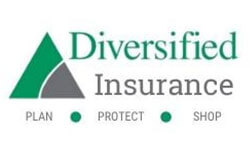The 10 Most Common Life Insurance Myths
The 10 Most Common Life Insurance Myths
In a world rife with uncertainties, securing the financial well-being of your loved ones is a paramount concern. Life insurance, a concept often shrouded in misconceptions, offers a safety net that transcends mere monetary value. However, persistent myths surrounding this crucial financial instrument can hinder individuals from making informed decisions. This extensive guide aims to debunk these fallacies, shedding light on the realities of life insurance and its pivotal role in safeguarding your family’s future.
Myth 1: Life insurance is only for older people.
One of the most pervasive myths surrounding life insurance is the notion that it is solely for the elderly or those nearing retirement. This belief couldn’t be further from the truth. In fact, industry experts and financial advisors unanimously agree that the earlier you invest in a life insurance policy, the better.
The Advantages of Early Adoption
By securing a policy at a younger age, you can capitalize on lower premiums and lock in favorable rates for the duration of the coverage period. This proactive approach not only provides peace of mind but also ensures that your loved ones are financially protected during their most vulnerable years.
Moreover, the process of obtaining life insurance becomes increasingly complex as you age, with potential health complications and pre-existing conditions posing challenges. By acting early, you can circumvent these obstacles and secure comprehensive coverage with relative ease.
Myth 2: Life insurance is too expensive
Another widespread misconception is that life insurance is an exorbitantly expensive endeavor, beyond the reach of ordinary individuals. However, this belief is rooted in a lack of understanding of the various options available and the factors that influence policy costs.
Tailoring Coverage to Your Needs
The truth is that life insurance policies come in various forms, each designed to cater to different financial situations and requirements. Term life insurance, for instance, offers affordable coverage for a specific duration, making it an attractive option for those on a tight budget or with temporary financial obligations, such as mortgages or educational expenses.
Furthermore, the cost of a life insurance policy is heavily influenced by factors such as age, health status, and lifestyle choices. By maintaining a healthy lifestyle and securing coverage at a younger age, individuals can significantly reduce the premiums they pay, making life insurance a viable and cost-effective investment.
Myth 3: I only need life insurance if I have dependents.
A common misconception is that life insurance is solely intended for those with dependents or financial obligations. However, this notion fails to recognize the broader implications and potential benefits of life insurance.
Safeguarding Your Wishes and Aspirations
Life insurance can serve as a powerful tool for preserving your legacy and ensuring that your wishes and aspirations are carried out even after you’re gone. Whether it’s providing for a charitable cause close to your heart, funding educational initiatives, or leaving a financial inheritance for future generations, life insurance can be the key to realizing your long-term goals.
Moreover, life insurance can be a valuable asset in estate planning, helping to mitigate potential tax burdens and ensuring a smooth transition of assets to your designated beneficiaries.
Myth 4: Life insurance offered by my employer is enough
While many employers offer group life insurance as part of their benefits package, there is a common belief that this coverage is sufficient and negates the need for additional personal policies. However, this assumption can leave individuals and their families vulnerable in the event of unforeseen circumstances.
Limitations of Employer-Provided Policies
Employer-provided life insurance policies often have strict limitations and may not provide adequate coverage for your specific needs. These policies are typically tied to your employment status, meaning that if you change jobs or retire, you may lose this valuable protection.
Additionally, the coverage amounts offered by employer-sponsored plans are frequently insufficient, providing only a fraction of what your loved ones may require to maintain their standard of living in your absence.
Myth 5: I only need life insurance if I’m working
A pervasive myth suggests that stay-at-home parents or unemployed individuals do not require life insurance since they do not contribute financially to the household. However, this belief grossly underestimates the invaluable contributions and sacrifices made by these individuals.
Recognizing the Irreplaceable
Stay-at-home parents and caregivers play a pivotal role in maintaining the well-being and stability of their families. Their tireless efforts, though unpaid, are essential and often irreplaceable. In the unfortunate event of their passing, the financial burden of securing alternative care and support services can be overwhelming.
Life insurance can provide a crucial financial cushion, ensuring that the care and well-being of dependents are not compromised and that the family can maintain their quality of life during this challenging transition.
Myth 6: I can only get life insurance for myself
Many individuals harbor the misconception that life insurance policies can only be taken out on their own lives. However, this belief overlooks the flexibility and versatility that life insurance offers in terms of beneficiary designation.
Protecting Your Loved Ones, Regardless of Relation
If you have a regular source of income and are not a minor, you can purchase a life insurance policy not only for yourself but also for your spouse, children, or other loved ones who may depend on your financial support.
This flexibility allows you to tailor your coverage to meet the specific needs and circumstances of your family, providing a safety net for those who rely on your financial contributions, regardless of their relationship to you.
Myth 7: Life insurance payouts are heavily taxed
A common concern surrounding life insurance is the potential tax implications associated with the payout received by beneficiaries. However, this apprehension is often rooted in misinformation and a lack of understanding of the tax laws governing life insurance proceeds.
Tax-Free Inheritance for Your Loved Ones
In most cases, life insurance payouts received by beneficiaries upon the death of the insured are not subject to income tax. This means that your loved ones can receive the full benefit amount without incurring any additional tax burdens.
However, it’s important to note that any interest earned on the payout may be subject to taxation. Consulting with a qualified tax professional or your life insurance provider can help you navigate these nuances and ensure compliance with relevant tax laws.
Myth 8: I can’t get life insurance because of a pre-existing condition
Many individuals with pre-existing medical conditions believe that they are ineligible for life insurance coverage or will face exorbitant premiums. While it is true that certain health conditions may impact policy costs and eligibility, this belief is an oversimplification of the reality.
Tailored Solutions for Diverse Health Profiles
The life insurance industry has evolved to cater to a wide range of health profiles, offering specialized policies and coverage options for individuals with pre-existing conditions. For example, guaranteed life insurance policies are designed specifically for those with significant health challenges, providing coverage without the need for extensive medical examinations.
Furthermore, insurance providers often work closely with applicants to assess their individual circumstances and tailor coverage solutions accordingly. By being transparent about your health history and working with reputable providers, you can explore the various options available and find a policy that meets your needs and budget.
Myth 9: I can’t change my life insurance contract once it’s issued.
Another persistent myth suggests that once a life insurance policy is issued, it becomes a rigid and inflexible contract, leaving little room for adjustments or modifications. However, this belief fails to recognize the dynamic nature of life insurance and the adaptability it offers.
Adapting to Life’s Changing Circumstances
Life is a journey filled with transitions and evolving circumstances, and your life insurance coverage should reflect these changes. Most reputable insurance providers understand this reality and offer flexibility in terms of policy adjustments.
Whether you need to increase or decrease your coverage amount, modify your beneficiary designations, or make other changes to align with your evolving needs, insurance providers can guide you through the process, ensuring that your policy remains relevant and tailored to your current situation.
Myth 10: You don’t need life insurance if you have savings.
A common misconception is that having a substantial savings account negates the need for life insurance. However, this belief fails to account for the unique advantages and protections offered by life insurance policies.
Safeguarding Your Family’s Future
While savings can provide a financial cushion, they are subject to depletion due to unforeseen circumstances, such as medical emergencies or other unexpected expenses. Life insurance, on the other hand, offers a guaranteed payout to your beneficiaries, ensuring that your loved ones have access to funds when they need them most.
Moreover, life insurance policies are designed to provide long-term financial security, with the payout often exceeding the total premiums paid over the course of the policy. This makes life insurance an invaluable investment in your family’s future, providing a safety net that extends beyond your lifetime.
Embracing the Truth, Securing Your Legacy
Life insurance is a powerful tool that transcends mere financial protection. By debunking the persistent myths surrounding this crucial investment, individuals can make informed decisions that safeguard the well-being of their loved ones and preserve their legacy for generations to come.
Embracing the truth about life insurance empowers you to navigate the complexities of this industry with confidence, ensuring that you secure the coverage that best aligns with your unique needs and circumstances. By partnering with reputable insurance providers and seeking guidance from financial experts, you can unlock the full potential of life insurance and gain peace of mind in knowing that your loved ones are protected, no matter what life may bring.




